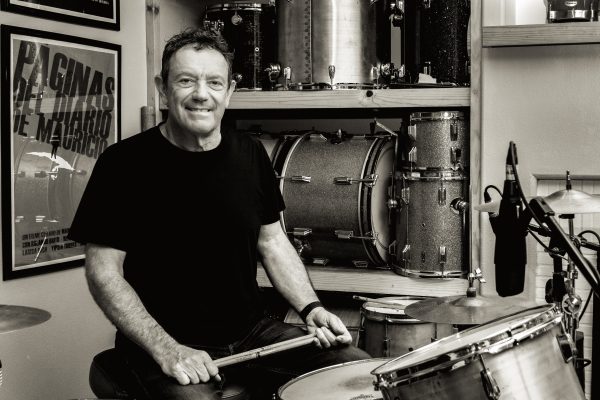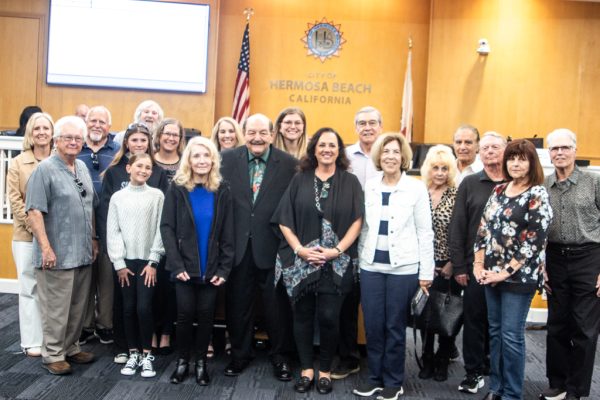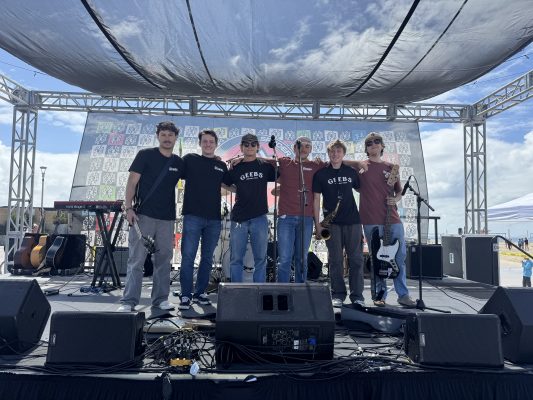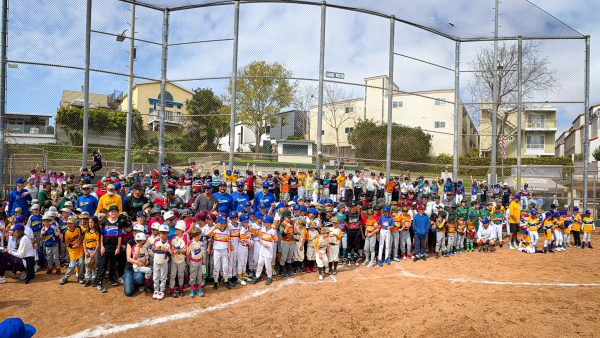
Andi Claman, Lauren Schlick and Isabelle Lau hovered excitedly over the fabrication lab, or “fab lab,” at Saturday’s TEDx Manhattan Beach education conference.
The previous night, the Manhattan Beach Middle School sixth graders were told to think of a device that would help them in their every day lives that they would have to create at the fab lab the following day. As they sat twirling their pasta at dinner, they brainstormed.
How great would it be, the girls thought, if they had a fork that automatically twirled their pasta? Or a spoon that could tell you if your tea was too hot, or your smoothie too cold?
On Saturday, that’s exactly what they created.
“How many times have you drank your soup and burned your tongue?” asked Isabelle, 10, explaining the logic behind the group’s invention.
“Have you ever had a brain freeze from a milkshake?” Lauren, 11, continued.
The girls demonstrated their smart utensils – the temperature-measuring spoon and the twirling fork. With the press of a button, the plastic fork wound pieces of string intended to be pasta.
Created by Paulo Bilkstein, assistant professor at Stanford University, the fabrication lab is a learning space stocked with computer-controlled tools like laser cutters, routing machines and three-dimensional scanners. At the TEDx Manhattan Beach conference, themed “Transforming Learning,” Bilkstein hosted a fabrication lab, as one of the 16 interactive sessions offered to event-goers.
“The conversation is loud,” said John Marston, event organizer, on the discussions percolating throughout the conference. He continued, enthusiastically, “I want a fab lab in my house.”
Twenty speakers presented in front of hundreds of people throughout the day – introducing provocative education models that incorporate digital technology.

Among them was John Bennett, a math teacher in Northern California, who spoke about how teaching math is unnecessary and shouldn’t be required in middle school and high school.
Bennett prefers that students play logic games and brain puzzles, which teach the same analytical and critical thinking skills “that are lying dormant” and “have been anesthetized by the standard curriculum,” he said. He’s confident that by replacing math with logic puzzles for students who don’t connect to a subject, “these students will not only be fully equipped to handle life’s challenges, but also will be able to pursue their passions and fulfill their life’s mission,” he said.
After his speech, Bennett hosted an interactive station titled, “Not your father’s math class,” and had attendees practice logic games and brain puzzles.
Thomas Suarez, a South Bay sixth grader, spoke on his experience creating the iPhone application, “Bustin Jeiber,” a Justin Beiber whac-a-mole.
Suarez recently started a programming club at school, where kids learn how to develop iPhone applications. “Not many kids know where to go to find out how to make a program,” Suarez said to the crowd. “For soccer, you could go to a soccer team. For violin, you could get lessons for violin. But what if you want to make an app?”
Manhattan Beach parents were pleased with the conversations that the conference inspired, especially regarding teaching children critical thinking and looking at ways to change current curricula.
“They memorize information and regurgitate it for a test score,” said Desiree Brown of Manhattan Beach, adding, “they graduate college and when they want to solve a problem, they want to look it up in a book.”
Kim Leserman, also of Manhattan Beach, agreed. “I’m afraid the system of teaching to the test isn’t grading real learning,” Leserman said. “I love that they’re starting the dialogue on how learning needs to change.”











